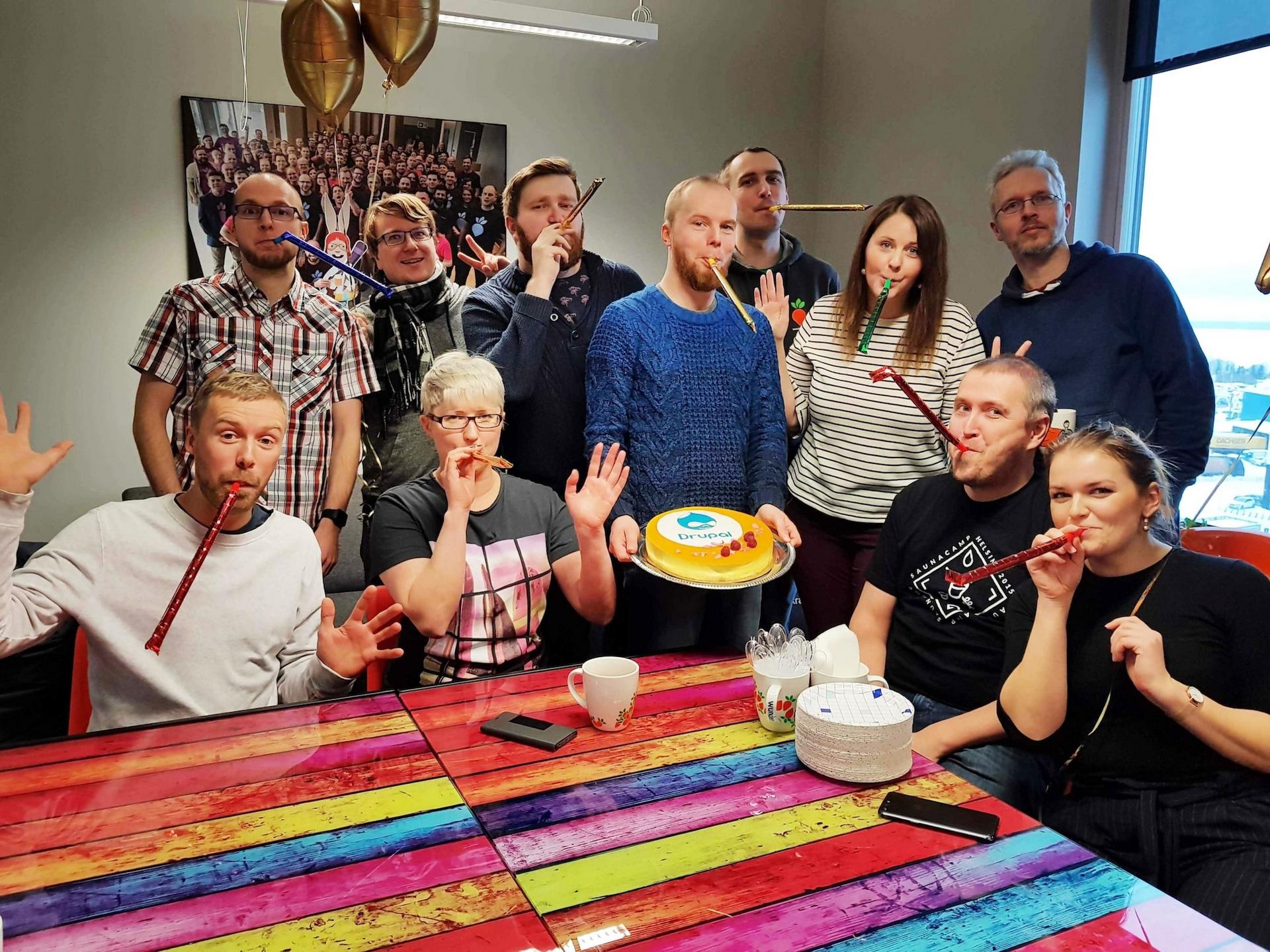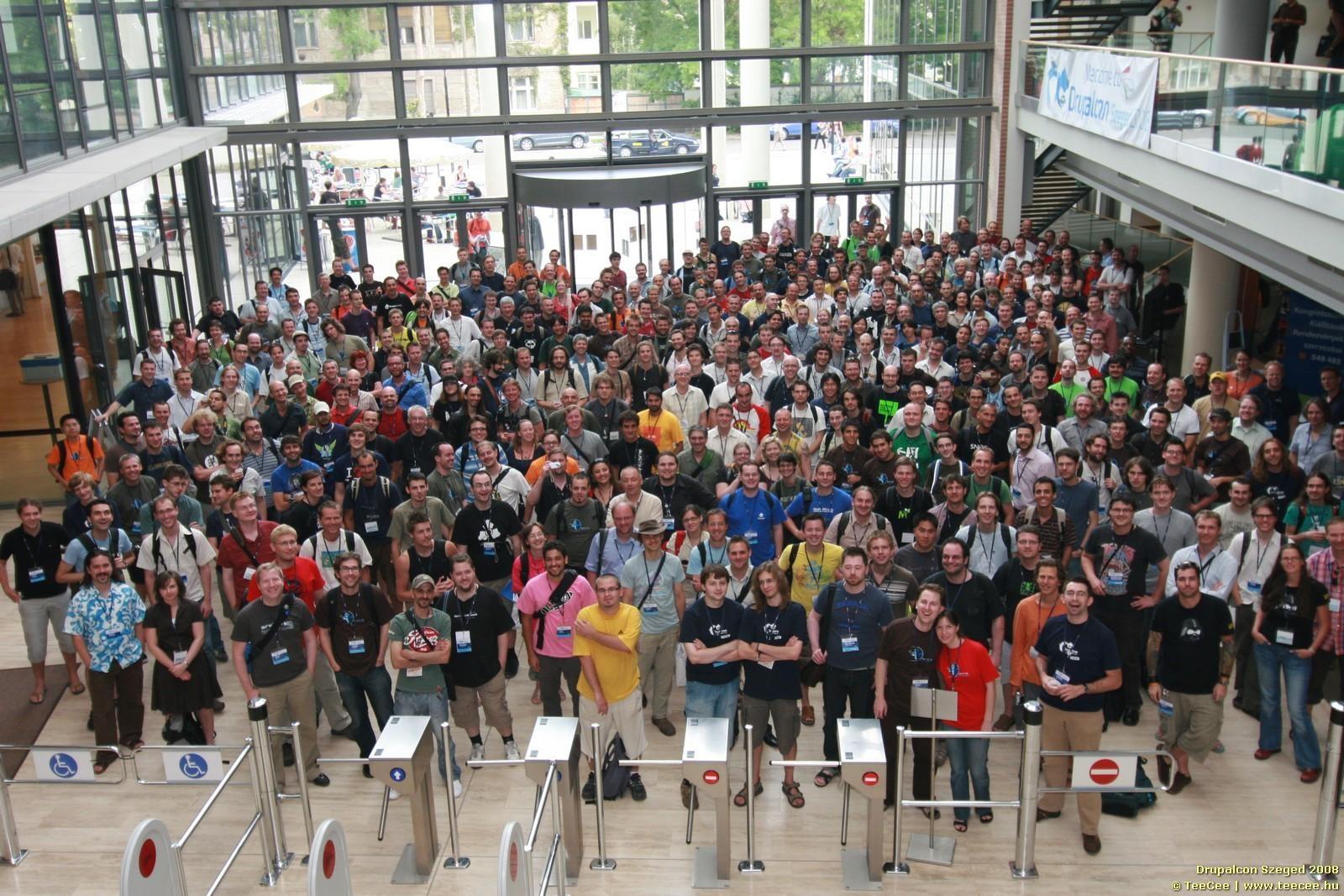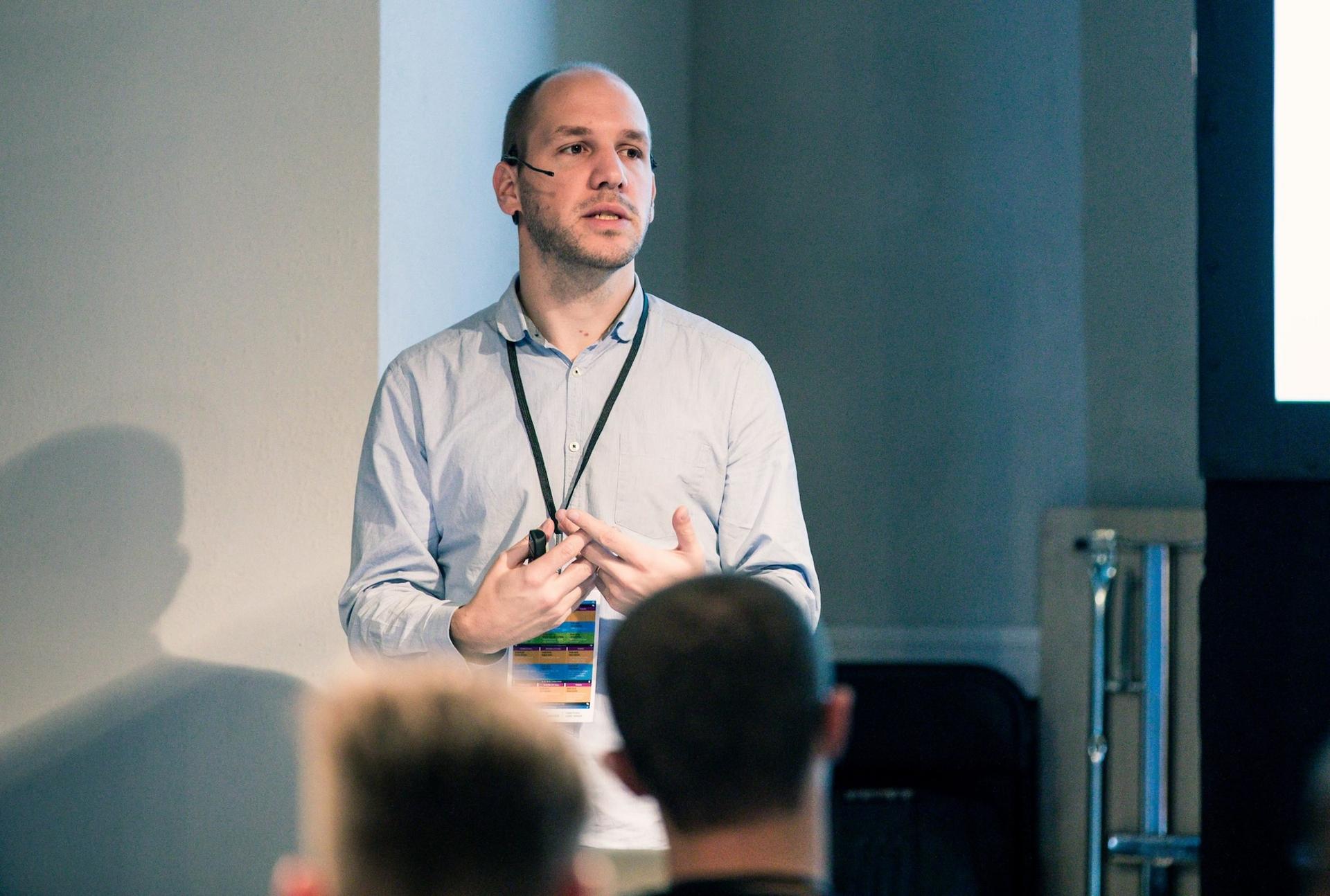Ten years together – a true story on friendship of Wunder and Drupal

One may wonder - why is Wunder working with Drupal, and how did this friendship begin ten years ago? This feels like the right time to reveal the story through the eyes and heart of Florian Lorétan - the co-founder of Wunder.
Most of the time it feels self-evident that Wunder has been working with DrupalOpens in a new tab from day one, they fit together like a jigsaw puzzle, end of a story. But how did it all start? Why Wunder chose Drupal, or was it the other way around? What brought them together? Was it love at first sight? Or was it “Once upon a time…” kind of story? There are plenty of questions out there, and we decided that it is time to find the answers! We invited our long-standing colleague and a co-founder of Wunder Florian LorétanOpens in a new tab for a conversation, because who else would be a better person to tell this story than someone who was there ten years ago and witnessed it all, right? So, get yourself comfortable, grab a cup of coffee and let us begin.
The beginning
Even ten years ago, when Wunder was founded, there were plenty of different technologies. Why was Drupal chosen as the main one at that time?
Many of the founders of Wunder were working with Drupal already before. I can think of two good reasons why Drupal was the one. Firstly, Drupal as software – it was a tool that did things the other frameworks or systems didn’t do. Secondly, the timing – 10 years ago was also the time when the Drupal community got much more active in terms of user groups and local meetups in different places. That made a significant impact on people getting to know each other, and starting companies like it were with Wunder.
How does Drupal differ from other technologies? What are its benefits?
Drupal is a software that gives a competitive advantage when it comes to productivity. At the same time, it is not a tool that you just install and use, and five minutes later you are good to go. It is not made for trivial applications, and there is a certain amount of work involved. That also means there is a lot of value in the expertise. For Wunder, it was beneficial that Drupal also allowed adding expertise when it comes to agile projects and online business. It provided the base where we could attach additional services. Later on, we as well included maintenance and design services. The idea pretty much everyone had in common at that time was that Drupal is a perfect tool for doing things we were interested in.
How has Drupal inspired the creation of Wunder’s carrot logo?
We thought that Drupal has to be present somehow, but not in an obvious way, so we can still use the logo when we don’t do Drupal. Not distancing ourselves from the software, but kind of saying – this is the technology we use and this is who we are, but we are not the technology. So we turned the DrupliconOpens in a new tab upside down and added three leaves on top. This design resulted in a lot of fun questions and debates over the years – is it a radish or is it a carrot, because it is shaped like a radish, you know a carrot is not actually that shape… We have a lot of things that came from a specific moment in time, and even though we don’t use the initial concept anymore, the carrot is still represented in our brand.

Drupal influence
Besides the logo, has Drupal made any other impact on Wunder as a company?
It is fun to realize how a lot of things that have shaped us actually came from Drupal or the Drupal community. Something that we are sometimes not even aware of. There’s been some really good inspiration. For example, the first WunderCons were mostly based on the concept and the structure of Drupal events. We had been organizing Drupal events for a long time, the format was pretty standard, and so it made sense to apply this to our internal conferences.
How about the company values and culture of sharing? Is it as well something that aligns with the Drupal values?
I would say those values align with open-source communities in general, but of course, the open-source Drupal community is the one where we have been the most involved. Nowadays, we get more and more related to other open-source communities as well. The landscape has changed quite a bit, but this idea – everything we know, we can share – is still present. We are proud of the things that we do and can be transparent when giving a presentation by saying: Hey, we tried this. That worked well, this part – not so much. If we have something to share, then it’s essential to share it.
Has the sharing knowledge always been so significant?
Yes, especially early on when Drupal didn’t have the presence in the market that it does today or even five years ago. We were a part of building the Drupal market, and it really made sense to do all these different activities. Drupal needed to be proven in an enterprise context with more prominent clients. We saw it as one of our duties to show and tell – it is possible to do the big stuff with Drupal. We had situations when other companies got some big project they couldn’t handle and referred to us because we were the ones who could help. It’s been a major opportunity for us to be the one company that does Drupal the best in our markets. It might sound a bit pretentious, but that has pretty much been our goal. And so we wanted to make sure that people are aware of that. Initially, it was thanks to all the events where we shared our knowledge and experience.

A little bit of history
Drupal has been around since 2001. What made it so popular around 2010 when a lot of Drupal companies, including Wunder, were founded?
It took quite a few years for Drupal to get up the speed, but the one event that in my mind was the trigger for a lot of the local community starting everywhere was a DrupalCon SzegedOpens in a new tab in 2008. Szeged is a small student city in the south of Hungary, definitely not an easy place to reach. The core maintainer of Drupal 6, Gábor HojtsyOpens in a new tab studied there and brought around 600 people to a place which wasn’t used to conferences of that size. People from all over the world, but mostly from Europe gathered there. The city was so small that whenever you would run into people, you could easily recognize they are from the Drupal community. I met a lot of people there that became very long-lasting friendships.
I wasn’t the only one to make key contacts, and I know of countless people who met their business partners at DrupalCon Szeged. I didn’t realize it at the time, but we were all witnessing key meetings that happened casually over dinner, but which had a significant impact later on. I also know that a lot of people came back from the event with a thought to organize a local meetup in their city. That is how a week later, I experienced the first-ever Drupal meetup in Munich, which was triggered by this same conference.
What kind of impact did this event had on you?
To me personally, this was my second DrupalCon, but it was the one where I got inspired and saw myself organizing a major Drupal event. It happened four years later as the community lead for DrupalCon Munich, and there were a lot of steps in between, but for me, that was one of those key moments. And it seems it imprinted similar experiences for other people as well.
Relationships over time
Ten years is quite a long time. How have the relationships between Wunder and Drupal changed over the years?
We were always conscious that Drupal is our major enabler, but from the start, it was clear that Drupal is a tool, and it’s not going to be our only tool. There wasn’t a sudden moment when we felt like we needed to do something else; it is just that different tools came along.
The type of projects that we are building has changed dramatically over the years, so has the industry standards. It used to be pretty common to use Drupal for everything. But as requirements changed, we need to add new technologies, like a reverse proxy to speed things up and serve more traffic. Drupal typically uses a SQL database, which doesn’t work that well for search functionality. We started using Solr, later on, replaced it with Elasticsearch, something we have been delighted with, even though it is not the standard for Drupal sites. Same goes with Angular and React – different frameworks for doing front-end and decoupled things. That way, we have developed a considerable amount of expertise on a variety of technologies.
Where did the idea of combining technologies come from?
For all of our projects, initially, there was a need for doing something that Drupal didn’t do. It’s a bit of an evolution and happened quite organically. A couple of years ago, we realized that all these other technologies are just as standard for us as Drupal is. Most of the sites we built today are decoupled so that the user interface is built with React. Sites with the search functionality are built with integration of Elasticsearch, and so on. Drupal is still a very good solution, but we believe that it’s more efficient to pick the right tool for the job, rather than to pick a single tool and to try to do everything with it.

How does Wunder contribute to the Drupal community?
We are active community members and organize community events in all of our countries (Finland, Estonia, Latvia). We have been speaking in the Drupal events quite a bit. The types of contribution usually have been pretty hands-on, based on real projects. We are bringing the market experience into the community.
Over the years we have contributed quite a bit with the modules as well. There are different contribution models, but for us, it is something that we integrate in the way we work. If we do something for a client that is valuable as a standalone component, we open-source it.
Early on, we had quite a lot of people, including me, who were really fanatic about the contribution to Drupal. It was both – a professional thing and a hobby thing, so we spent evenings and weekends contributing and building modules. That time has passed, personal situations have changed, the overall Drupal community has aged, and we can see that the Drupal contributions overall have become more professional. Now our contributions are less for the sake of contributing, but more focused on what is valuable for all three parties: our clients, ourselves and the community.
With a look into the future
How do you see the future of Drupal?
Drupal definitely has its strengths. In my mind, the key would be to continue the focus on what Drupal does the best as well as in providing good integrations. There has been a lot of progress in enabling the web services and API integrations, which I find very beneficial. At the same time, I see that there is too much left that assumes Drupal is used for everything. For example, in a decoupled setup, it still has too much influence on how content is rendered. If we want to look at Drupal as a solid solution, it should work as a standalone system, with the ability to completely disable certain functionalities. The progress has been respectable, but we need to go even more further, considering the context in which Drupal is used today and will be used in the future.